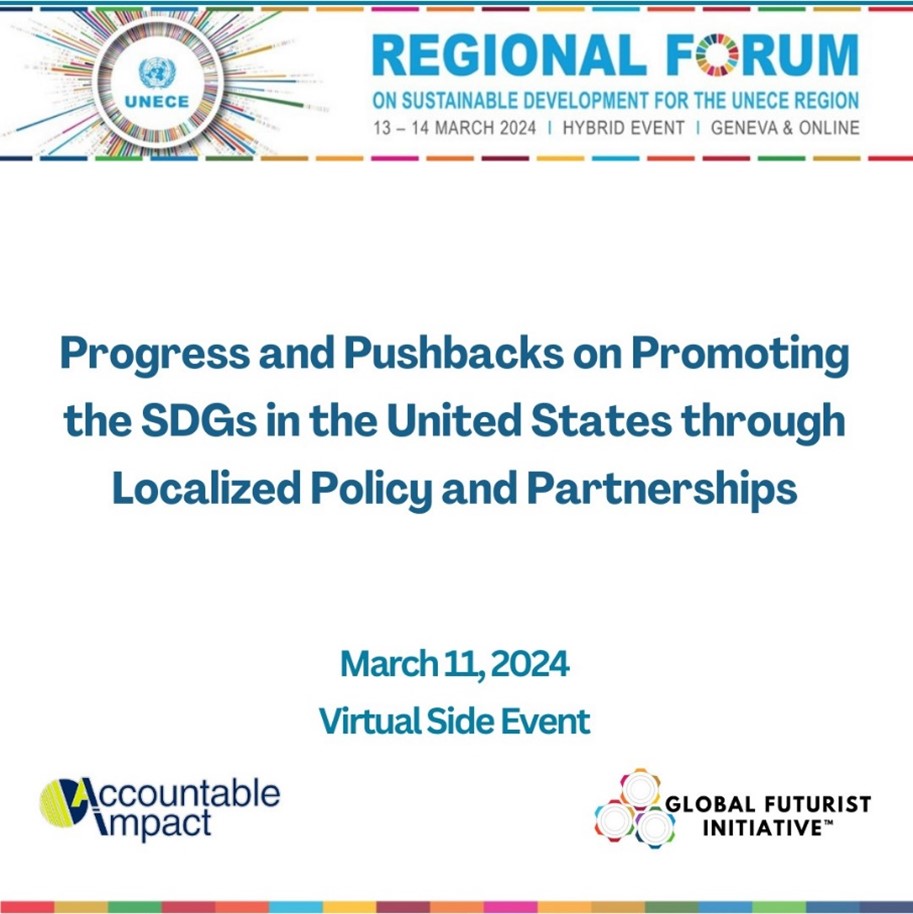
Side Event: Progress and Pushbacks on Promoting the SDGs in the United States through Localized Policy and Partnerships
The United States must take concrete actions to adopt and accelerate the UN Sustainable Development Goals as an American policy. Americans think the federal government holds responsibility for implementing SDGs, however, all sectors have a role to play including corporations and individuals. According to the 2022 Social Progress Index, the U.S. has been stagnating in social progress since 2011 and actively sliding backward on targets since 2017, which is impacting American youth and putting at risk future generations. 2023 marked the midpoint on the SDGs and the U.S. has yet to deliver its first Voluntary National Review to the UN. A growing impetus from American supporters of the SDGs reflect the need to demonstrate highlevel political commitment to the SDGs. Cities, local institutions, and communities have taken the lead by focusing on localization and implementation of the SDGs through Voluntary Local Reviews, academic curriculums, implementation of regenerative sustainability strategies, business innovations and more. The SDGs have the potential to serve as a master key for unlocking interdisciplinary and intersectional cooperation to tackle major issues the country faces today. Efforts on localization of the SDGs are being led by local entities but more is needed. An emphasis to strengthen capacity in institutionalizing and expanding support for committing the U.S. to the SDGs is decisive to achieve the 2030 Agenda.
This session highlighted experiences about making progress as well as lessons learned in the pursuit of localizing the SDGs through partnerships and to spur action for a strong political commitment on behalf of the U.S. federal government to achieving the SDGs.
Accountable Impact


